Research Output

Paul Wylleman's research includes interpersonal relationships in competitive sport, the career development of talented, elite and former elite athletes, the education and consulting in applied psychology, and the development and use of mental skills in high performance contexts.
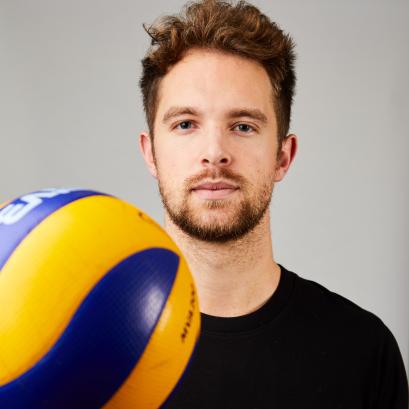
Koen De Brandt's research focuses on the dual career of elite athletes (the combination of elite sport and/or employment)
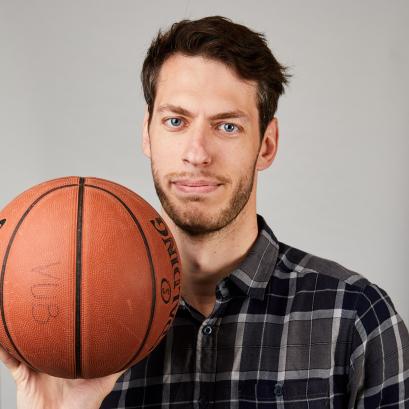
Jolan Kegelaers' research is focused on the development of psychological resilience within talented and elite athletes and the implementation of innovative training methods within sports, music, and dance.
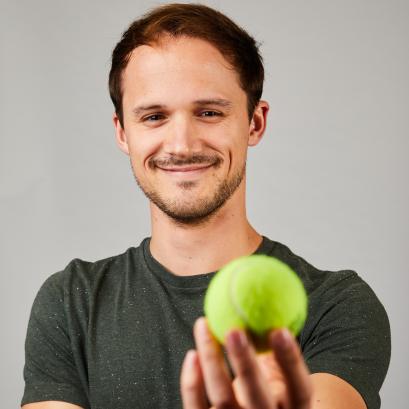
Simon Defruyt's research includes competencies, support strategies and education of dual career, support providers.
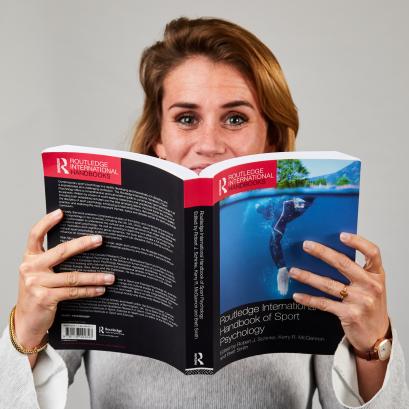
Suzan Blijlevens' research targets psychological characteristics and skills elite athletes' require throughout different stages of the athletic career, and how coaches can stimulate, teach and develop those characteristics and skills within their athletes.
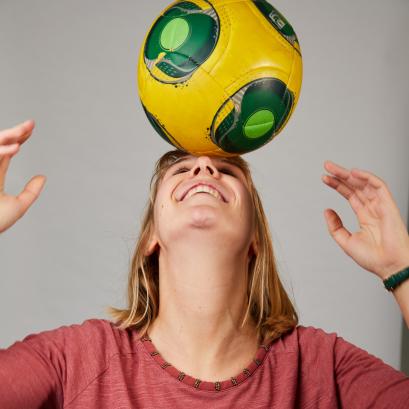
Sofie Smismans' research investigates the challenges, barriers, and resources influencing elite athletes' dual career pathway 'elite sport and employment' and their transition to a post-athletic career by entering the job market.
Media / Press
Scientific books
Completed PhD Theses
Dr. Suzan Blijlevens - The development of performance behavior in talented and elite athletes
Dr. Suzan Blijlevens, 2015 - 2019 (completed) - Within their athletic career, athletes are confronted with a lot of different challenges, not only in their athletic career, but also in their daily life in their psychosocial development as a talented/elite athlete. Considering the developmental demands, the required psychological characteristics and skills to effectively deal with those challenges differ throughout the athletic career. This aim of this doctoral dissertation is to indicate which psychological characteristics and skills are required throughout different stages of the athletic career and how coaches can stimulate, teach and develop those competences within their athletes.
Dr. Simon Defruyt - The identification & development of competencies of dual career support providers in elite sport
Dr. Simon Defruyt, 2015 - 2019 (completed) - Supporting elite athletes professionally is essential to enable them to pursue their dual ‘elite sport and studies’ pathway (European Commission, 2012; Geraniosova & Ronkainen, 2015). Dual career (DC) support research so far has mainly focused on specific case studies, evaluating DC support programmes within their specific context (e.g., López de Subijana, Barriopedro, & Conde, 2015; Ryan et al., 2017) or on the national policy context DC support programmes act within (Aquilina, 2013). Being the first to specifically target DC support providers’ resources, this PhD addressed a major research gap by providing data, instruments and education modules with which the professional development for DC support providers can be enhanced.
Dr. Jolan Kegelaers - A coach-centered exploration of resilience development in talented and elite athletes
Dr. Jolan Kegelaers, 2014-2019 (completed) - It is recognised that athletes are potentially exposed to a variety of stressors and are required to successfully navigate sometimes very challenging career transitions. Psychological resilience, defined as the process of mobilizing protective factors in order to reach or maintain a positive outcome despite exposure to stress or adversity, has therefore gradually been gaining interest in sport psychology. Research has mainly focussed on identifying the protective qualities that help resilient athletes overcome challenges and adversity, however, there remains a lack of knowledge on how these qualities should be developed. This PhD will explore how coaches can positively develop resilience in their athletes, specifically through their day-to-day interactions with the athletes.
Dr. Koen De Brandt - A holistic perspective on student-athletes' dual career demands, competencies and outcomes
Dr. Koen De Brandt, 2013-2017 (completed) - Nowadays, the majority of athletes advance their elite sporting careers while attending university or university college. During this dual career (DC) ‘elite sport and higher education’ pathway, student-athletes are not only confronted with athletic and academic requirements but also face concurrently (and possible conflicting) requirements at the psychological, psychosocial, and financial levels of development. In order to overcome these multi-level demands and achieve the desired athletic and academic outcomes, student-athletes require effective competencies. This PhD study addressed some of the gaps in the existing, mainly qualitative research on student-athletes’ DC demands, competencies and outcomes using quantitative investigations.
Dr. Janja Tekavc - Investigation into gender specific transitions and challenges faced by female elite athletes
Dr. Janja Tekavc, 2013-2017 (completed) - Athletes’ career development has become a growing field of research in the past decades where the focus of the studies has been shifted from specific career transitions into a holistic, multi-level approach to the competitive as well as post-competitive careers of athletes (Stambulova, Alfermann, Statler, & Cote, 2009). While existing models of career development are effective in determining normative transitions that occur at different levels of athletes’ functioning throughout their athletic career, they contain however, less data about diversities which may exist in view of gender-specific characteristics (Wylleman, Alfermann, & Lavallee, 2004). Since research is particularly scarce on female athletes, the purpose of this doctoral study was to develop a better understanding of female athletes’ career development. The current doctoral study investigated female athletes’ specific transitions, demands and challenges that possibly exist in their athletic career development.
Dr. Anke Reints - Validation of the holistic athletic career model and the identification of variables related to athletic retirement
Dr. Anke Reints, 2007-2011 (completed) - One of the major life events encountered by athletes in the course of their athletic career is athletic retirement. Duringthe transition out of elite sport, athletes need to cope with a complex interaction of transition demands (e.g., identity, social network, professional vocation). To understand the process of athletic retirement, it is imperative to recognizea nd understand that athletes are confronted with transitions and demands related to the athletic as well as non-athletic context. This need for a ‘whole person’ lifespan approach is reflected in the athletic career developmental model of Wylleman and Lavallee (2004), which takes into account the reciprocal and interactive nature of transitions within the athletic, psychological, psychosocial and academic/ vocational level of development. This PhD study contributed to the further validation of the developmental model by investigating the role of gender in the way athletes shape and experience their (post-) athletic career as well as the required resources and availability of career support services aimed at facilitating the transition out of elite sport and into a post-athletic career.
Dr. Nathalie Rosier - A holistic perspective into the factors contributing to the continued development of junior elite athletes to senior elite level
Dr. Nathalie Rosier, 2011 - 2020 (completed) - Pursuing the top in an athletic career is a long and complex developmental process. Within this process, the junior-senior transition in sport is suggested to be the most crucial transition for athletes who want to reach senior elite level. During this transition athletes are, as presented in the Holistic Athletic Career (HAC) model, simultaneously confronted with transitions at athletic, psychological, psychosocial, academic/vocational, financial, and legal level of development. The general aim of this PhD study is to explore elite athletes’ junior-senior transition from a holistic perspective.
Ongoing PhD Theses
Dra. Sofie Smismans - A holistic perspective on the vocational development of active and retired elite athletes
Dra. Sofie Smismans, 2017-2021 (ongoing) - Achieving top performances and international success in elite sport requires athletes to invest their personal and time resources to such a degree that being an elite athlete becomes equivalent to a profession (Conzelmann & Nagel, 2003). However, the ‘elite athlete profession’ is not a ‘lifetime job’ and athletes typically retire from elite sport at a relatively young age (from 28 to 40 years depending upon type of sport; North & Lavallee, 2004; Wylleman & Lavallee, 2004). As such, athletes still have a large part of their lives ahead of them after athletic retirement, implying they are likely to engage in a new professional career by entering the job market (Martin et al., 2014). However, as the athletic career can span 15-25 years, athletes concurrently face multilevel challenges (e.g., athletic, psychological, psychosocial, academic, vocational, financial) which influence their vocational development, employability and employment during and after their athletic career. In order to enhance active and former elite athletes’ employment and employability, more empirical data is required on (a) athletes’ developed and required competencies, (b) the influence of transitional challenges and athletes’ characteristics during different stages of vocational development on the (post-)athletic career, (c) the quality of career support initiatives, and (d) the expectations and contributions of stakeholders within the employment sector. The general aim of this PhD is therefore formulating recommendations to athletes and their environment by identifying, during as well as after the athletic career, (a) barriers impeding athletes’ vocational development, (b) internal (i.e., competencies) and external (e.g., support services) resources enhancing athletes’ vocational development, and (c) employers’ perspectives on employing (former) athletes.
Drs. Mattias Dooms -
